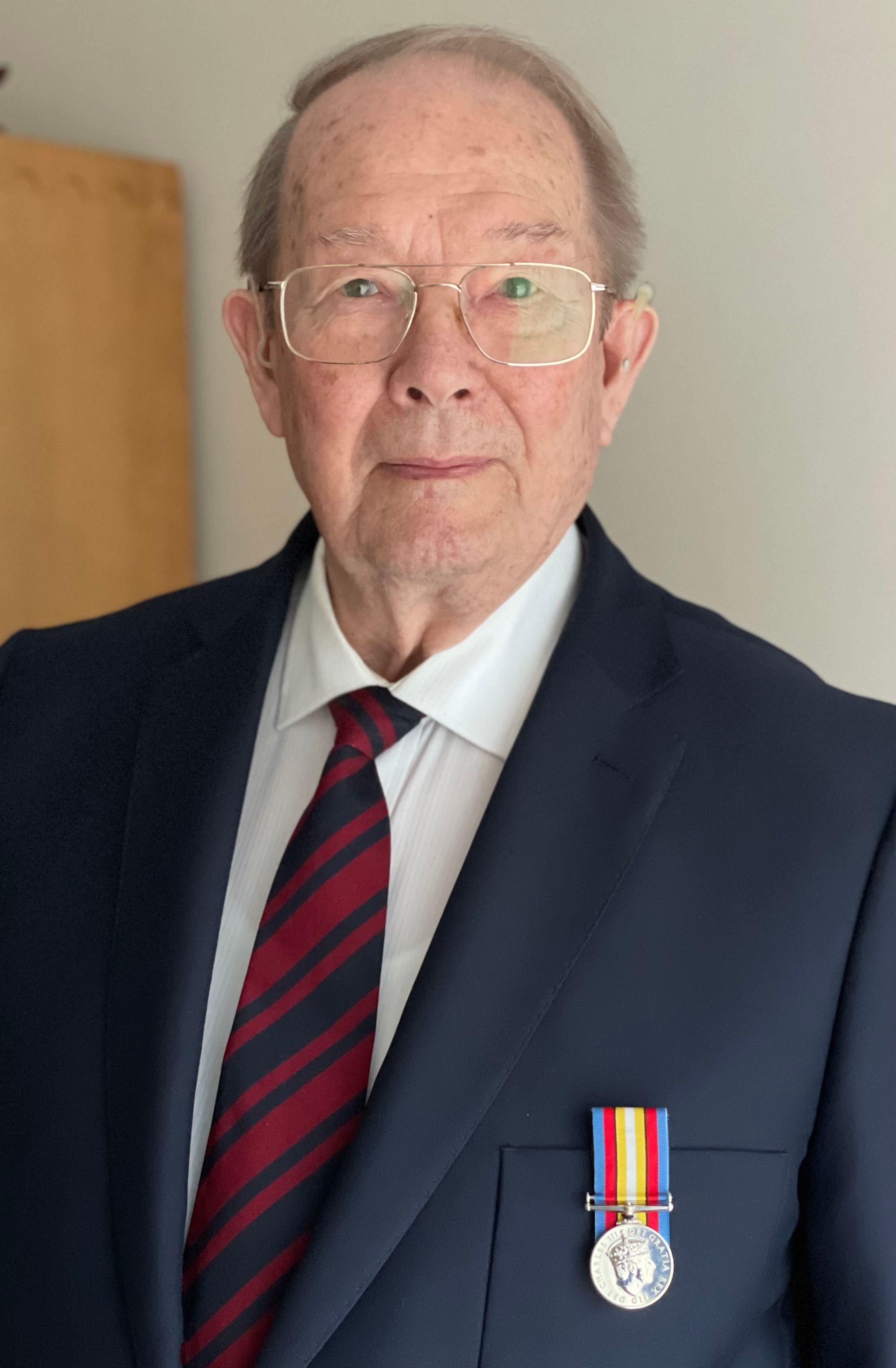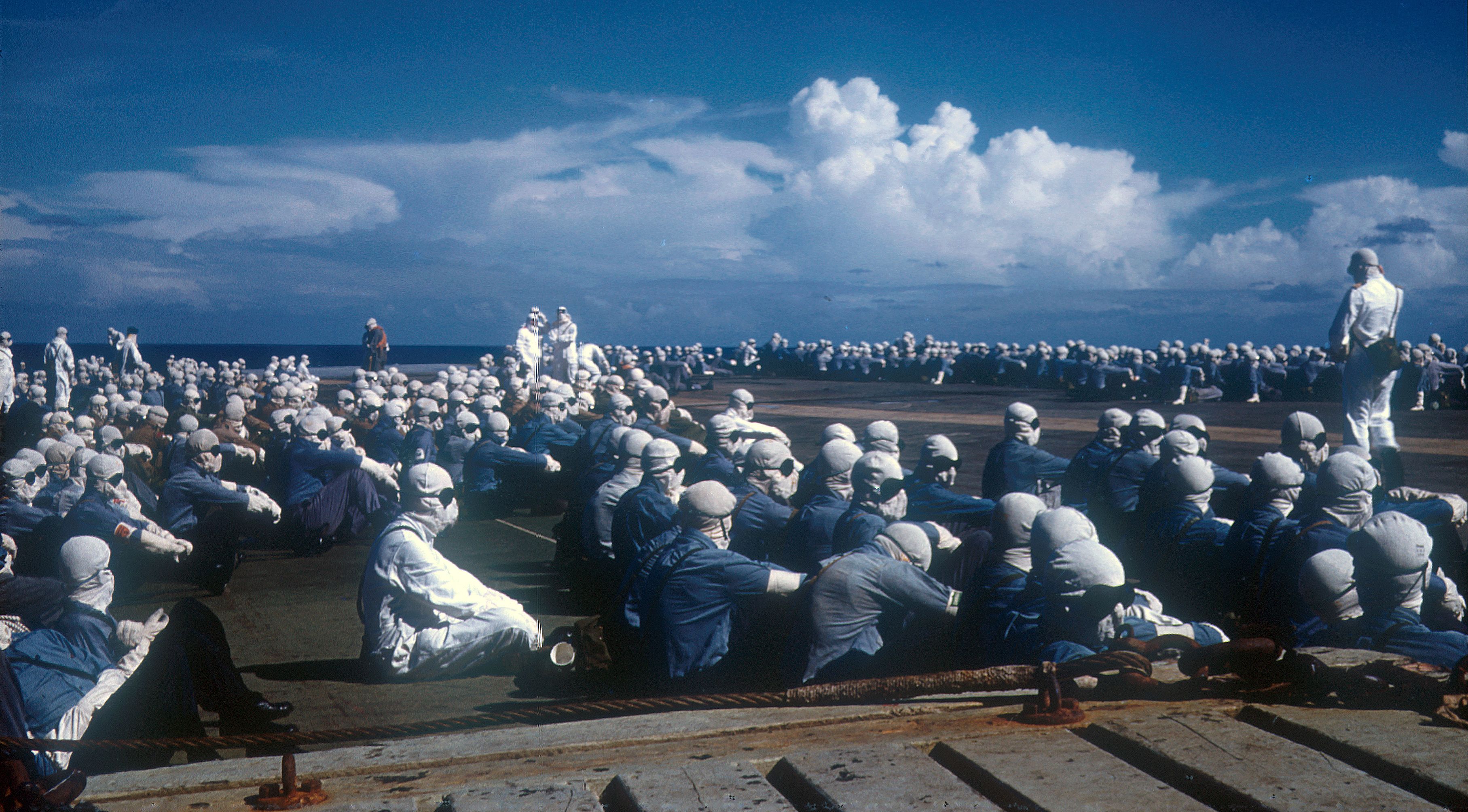
Frank Bools was born in Leeds in 1934. He left school at the age of 14, and at 15 he started work as an apprentice joiner. Upon being called up for National Service, Bools decided to sign up as a regular serviceman in the Army. He was trained as a field engineer and spent three years in Hong Kong, followed by a year at the School of Military Engineering in Chatham. He was then posted to Christmas Island. Bools and his squadron contributed to the construction of the island’s main base camp for Operation Grapple. After returning to the UK in March 1959, Bools was reposted to Hong Kong where he remained until he left the Army in 1961. He moved into a career in construction, eventually becoming a quantity surveyor. Frank retired in 1992 and currently lives in Oxfordshire. He was married for 59 years before his wife’s death in 2014, and has two children, seven grandchildren, and seven great-grandchildren.
Interview extracts
Description
Frank Bools was a Royal Engineer who witnessed five nuclear detonations on Christmas Island in 1958, which included Grapple Y, Britain’s largest nuclear explosion. In his interview, he describes how he and his peers had to improvise to build the infrastructure with scarce materials on Christmas Island. In the clip, Bools mentions the role of ‘Gilbertese’ or I-Kiribati labourers in helping to construct an amphitheatre out of bitumen barrels. He expresses his admiration for the Fijian soldiers, who also contributed to the building of the base on Christmas Island. Their stature, strength and camaraderie left a positive impression on him that remains to this day.
This is a short extract from an in-depth interview. Frank Bools was recorded for the Oral History of British Nuclear Test Veterans project in 2024. The interviewer was Christopher R Hill. This project was run in partnership with National Life Stories and the full interview can be accessed at the British Library.
Transcript
I can remember the Sergeant Major was given the task of building the new camp cinema, and he built an amphitheatre out of empty bitumen barrels filled with coral sand. And he had twelve Gilbertese men, because they could earn more working for us than they could, you know, otherwise, otherwise they were just working on the copper. The Fijis, on the other hand, were attached to 12 Squadron, they were part of our Squadron. So I was with them every day. They were the most wonderful people I’ve ever seen. They were, we used to call them the ‘Fi-Giants’, because they were all enormous. There were two guys called Benny. Little Benny was six foot four.
[interviewer laughs]
Big Benny was seven foot something. He was… they were giants!
[ends at 0:01:11]
Description
Frank Bools describes how his service on Christmas Island led him to the decision to leave the Army. Other veterans have come to similar decisions due to their experiences. Following his exit from the Army, Bools moved to Leeds with his wife and began a successful career in the construction industry.
This is a short extract from an in-depth interview. Frank Bools was recorded for the Oral History of British Nuclear Test Veterans project in 2024. The interviewer was Christopher R Hill. The project was run in partnership with National Life Stories and the full interview can be accessed at the British Library.
Transcript
For better or worse it was Christmas Island that persuaded me, or me and my wife, that I would seek another occupation, leave the army. But when I think back now about what could have been if I’d have stayed in the army, it’s like, I’d read a poem – I like poetry – and there’s a poem called The Road Not Taken, and I often read that poem and think the road not taken was staying in the army and Christmas Island was the kind of catalyst that changed my… I fully intended being a regular soldier. So from that point of view, I used the Christmas Island experiences in my life afterwards working for the construction industry. I’m quite passionate about the construction industry and about buildings. I’m interested in architecture and methods of building, and I see how changes have occurred due to the regulations on thermal insulation and sound insulation and I think a lot of that matured in my mind while I was building on Christmas Island, stuff working there and thinking about methods of working then and what it’s like now. It certainly was a big stepping stone in my life.
[ends at 0:01:53]


